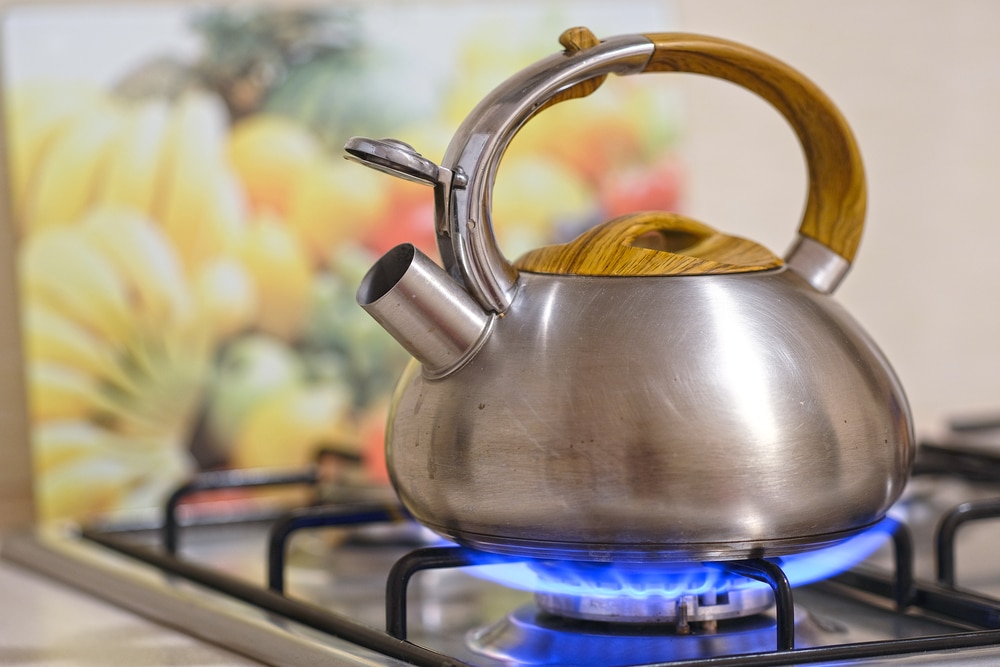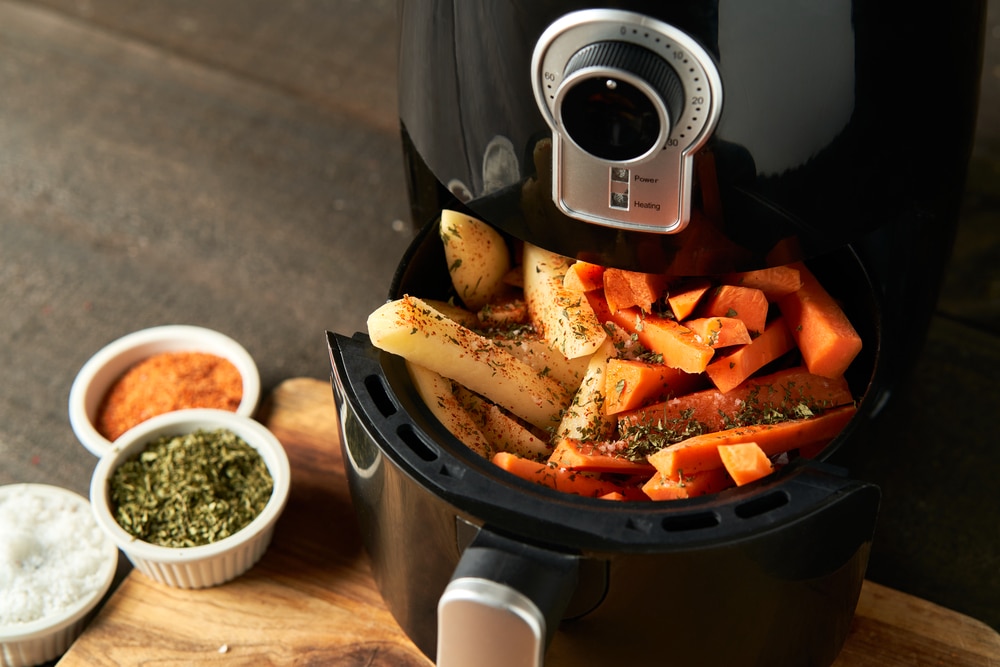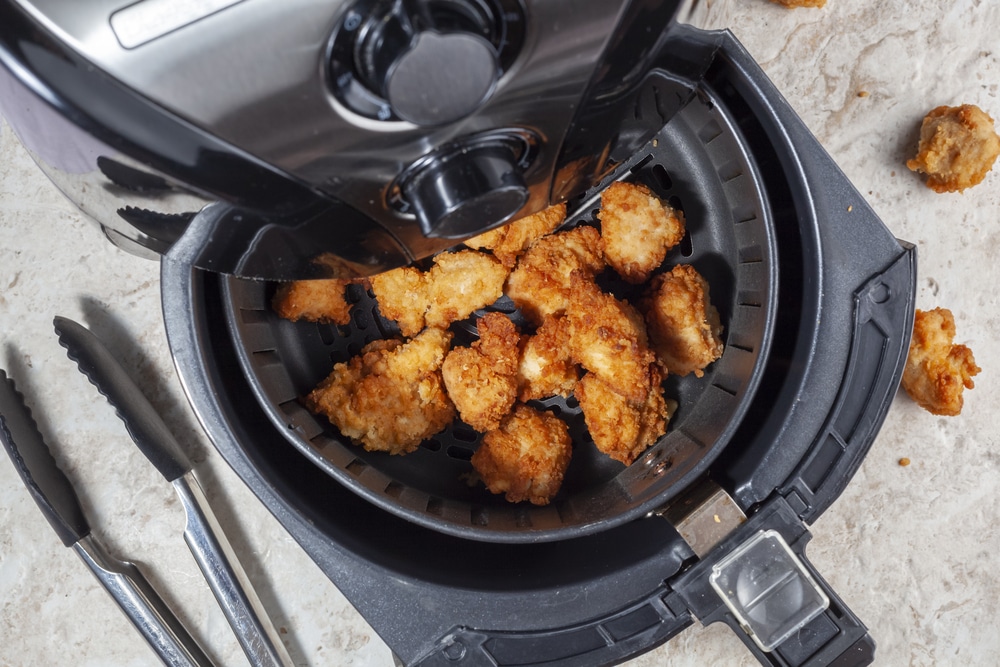Last Updated on
When it comes to boiling water, electric kettles and stovetop kettles are two of the most popular options. But which is best for you? Is an electric kettle more efficient than a traditional stovetop model? Or does its convenience come at too high a cost? In this blog post, we’ll be exploring electric kettle vs stovetop kettle – pros and cons of each type so that you can make an informed decision about what’s right for your home. So grab yourself a cup of tea, sit back and let us take care of helping you decide between these two seemingly similar yet vastly different kitchen appliances.
Table of Contents:
- Electric Kettle Pros and Cons
- Stovetop Kettle Pros and Cons
- FAQs in Relation to Electric Kettle vs Stovetop Kettle
- Conclusion
Electric Kettle Pros and Cons
Electric kettles are a convenient and fast way to boil water for tea, coffee, or other hot beverages. But before you buy one, it’s important to consider the pros and cons of electric kettles.
Pros:
Speed:
Electric kettles heat up quickly compared to stovetop models – usually in less than five minutes. This makes them ideal for busy mornings when you need your cup of tea fast.
Safety:
Electric kettles automatically shut off once the water has reached boiling point, so there’s no risk of burning yourself or leaving an open flame unattended. They also have features like auto-shutoff and boil-dry protection that prevent overheating or boiling away all the water in the kettle if left on too long.
Convenience:
With an electric kettle, you don’t have to worry about having access to a stovetop burner or worrying about finding matches every time you want some hot water. You can just plug it in anywhere with an outlet nearby and get started right away. Plus they come with handy features like temperature control settings so you can make sure your beverage is brewed at exactly the right temperature for optimal flavor extraction from your favorite teas and coffees.
Cons:
Cost:
Electric kettles tend to be more expensive than their stovetop counterparts due to their convenience factor as well as additional safety features built into them (like automatic shutoff). So if budget is a concern then this might not be the best option for you.
Energy Usage:
Since electric kettles use electricity rather than gas/propane/wood etc., they do require more energy usage overall which may add up over time depending on how often they are used – especially if multiple people are using it throughout the day (e.g., at work).
Space Requirements and Portability Issues:
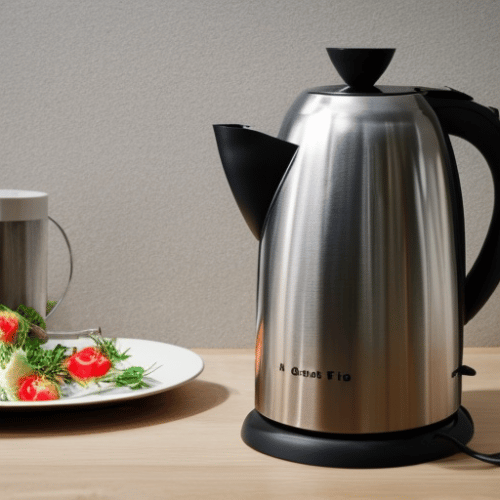
If space is limited then an electric kettle might not be ideal since they take up quite a bit of counter space due to their size and shape; plus most models aren’t designed for portability either so carrying them around isn’t always easy either, especially larger ones.
Electric kettles are a great option for convenience and efficiency, but they come with some drawbacks that should be considered. Now let’s take a look at the pros and cons of stovetop kettles to see how they compare.
Stovetop Kettle Pros and Cons
Stovetop kettles have been a popular choice for making tea and coffee for centuries. They are often seen as the traditional way to heat water, but there are both pros and cons to using them.
Pros:
Speed:
Stovetop kettles can be incredibly fast when it comes to boiling water. When placed on a high flame, they can boil water in minutes compared to electric kettles which take longer due to their lower wattage. This makes stovetop kettles ideal if you’re looking for an instant cup of tea or coffee without having to wait around too long.
Safety:
One of the biggest benefits of stovetop kettles is that they are much safer than electric ones because there is no risk of electrical shock from touching hot surfaces or spilling boiling water onto yourself or your kitchen countertops. The handle also stays cool so you don’t need oven mitts when pouring out hot liquids like with electric models.
Durability:
Stovetop kettles tend to last longer than their electric counterparts since they don’t have any electrical components that could break down over time due to wear and tear from regular use. This means that you won’t have worry about replacing your kettle every few years like with some cheaper models of electric ones which may only last a couple of years before needing repairs or replacement parts.
Cons:
Manual Operation:
On the downside, stovetop kettles require manual operation and take longer than electric ones do; plus they must remain on top of a burner while being used (which could pose safety concerns).
Lack of Features:
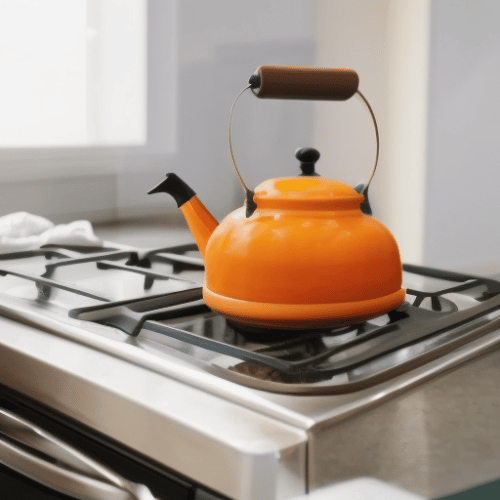
Additionally, many models lack features such as temperature settings which could make it difficult to achieve desired results consistently from cup-to-cup or batch-to-batch brewing sessions.
In conclusion, both types have their advantages and disadvantages depending on what kind of lifestyle you lead – whether it’s speed/convenience versus cost/control – but ultimately, it comes down to personal preference when deciding between an electric and a stovetop kettle.
It’s up to you to decide which one is the best fit for your needs – so let’s take a look at which kettle is better for you.
FAQs in Relation to Electric Kettle vs Stovetop Kettle
Which is better electric kettle or stove kettle?
It really depends on the individual’s needs and preferences. Electric kettles are great for quickly boiling water, as they heat up faster than stovetop kettles. On the other hand, stovetop kettles offer more control over temperature and can be used to make tea with a more traditional flavor profile. Ultimately, it comes down to personal preference – some people prefer electric kettles while others opt for stovetop ones. It’s worth trying both out before making a decision.
Are electric kettles faster than stovetop?
Yes, electric kettles are faster than stovetop kettles. Electric kettles heat up water quickly and efficiently, allowing you to have hot water in a matter of minutes. stovetop kettles require more time and energy as they must be heated on the stove before boiling. Additionally, electric kettles come with safety features such as auto shut-off that prevents overheating or boiling dry which can be dangerous when using a stovetop kettle. Therefore, for convenience and safety reasons, electric kettles are definitely faster than their stovetop counterparts.
Is it cheaper to boil water in a kettle or electric stove?
It depends on the type of kettle and stove being used. Generally, boiling water in a kettle is more efficient than using an electric stove as it uses less energy to heat up the same amount of water. However, if you have an induction hob or other high-efficiency electric stove, then it may be cheaper to boil your water on that instead. Ultimately, it comes down to personal preference and which appliance best suits your needs.
Conclusion
When it comes to electric kettle vs stovetop kettle, there is no one-size-fits-all answer. Both have their own pros and cons that should be considered when making a decision. Ultimately, the best choice for you will depend on your lifestyle and preferences. If you’re looking for convenience and speed, an electric kettle may be the way to go. But if you want something more traditional or are looking to save energy costs, then a stovetop kettle might be better suited for your needs. No matter which type of kettle you choose, both can provide delicious hot beverages in no time.
Paul is the type of person who never met a problem he couldn’t fix. He can always be found tinkering with something in his house, even if it isn’t broken! His tips and tricks are often shared on our site. He’s the one you call when something breaks because he has been known to improvise fixes for everything from leaky faucets to malfunctioning dryers.

